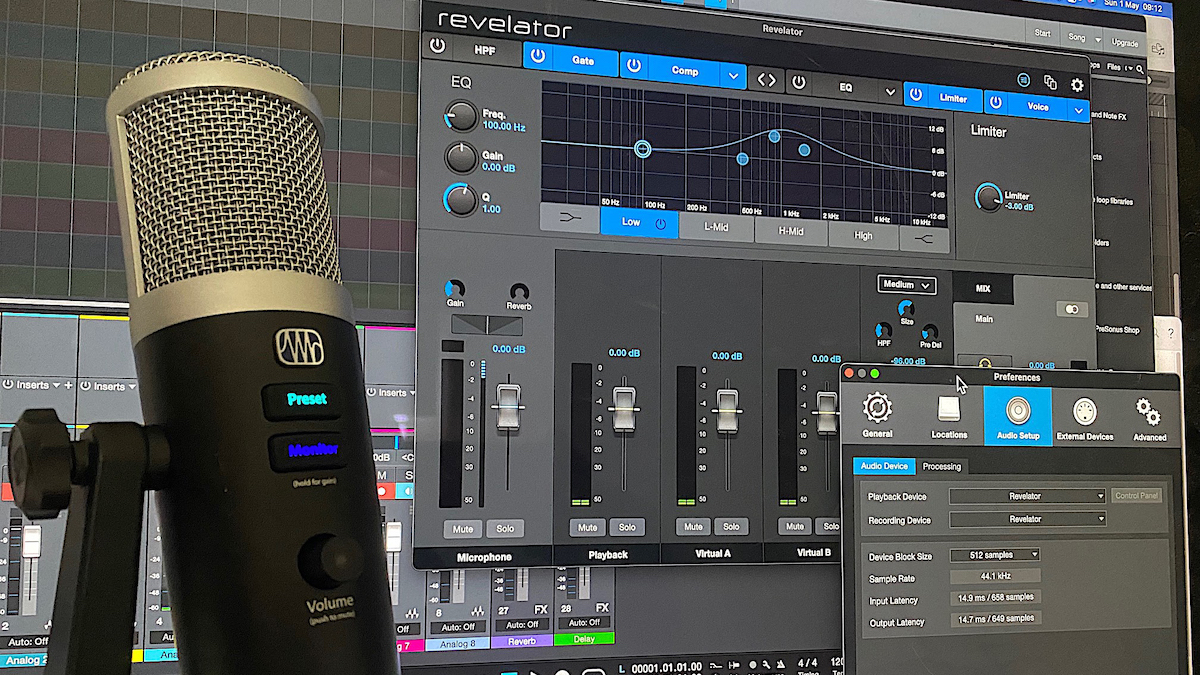MusicRadar Verdict
Extra features make this one of the most flexible microphones out there for streaming and music duties.
Pros
- +
Highly flexible live streaming and recording mic
- +
Good range of selectable patterns
- +
Great and customisable effects
- +
Loopback features are great for streaming
Cons
- -
A little difficult to understand the Mixer setup at first
MusicRadar's got your back
PreSonus Revelator review: What is it?
On first glimpse the PreSonus Revelator microphone could be just another USB condenser microphone, but its specs boast bigger aspirations, with a 20Hz to 20kHz response and up to 24-bit/96kHz recording. It also has StudioLive Fat Channel processing – with effects built into the mic – and well-implemented loopback and mix options meaning it can be used for a wide variety of 21st century tasks.
On unboxing you soon discover some physical plusses. There's a solid, built-in but detachable desktop mic stand with a padded base. The Revelator has USB C connectivity and a headphone out, so it acts as both an input and output when connected to your computer or phone (it's both iPhone and Android compatible). In fact it describes itself as a 6-in/6-out audio interface and the input and outputs of all of these become clear when it's computer connected (which it easily does with Logic and Studio One in our tests).
However, on a basic level, the single Volume dial and Monitor button let you control headphone output, microphone input, muting and the mix blend of the microphone with your DAW – all with a simple tap operation to switch between them.
PreSonus is a company renowned for its software as well as hardware, so you get its excellent Studio One Artist DAW plus Ableton's Live Lite for good measure, both part of a reputed $1,000 bundle. As a result, this tops out as one of the best budget USB microphones in our eyes.
These sets of specs and extras already makes the PreSonus Revelator a little more flexible than an average USB microphone, but it's when connecting it to your Mac and PC that the fun really starts…
PreSonus Revelator review: Performance & verdict
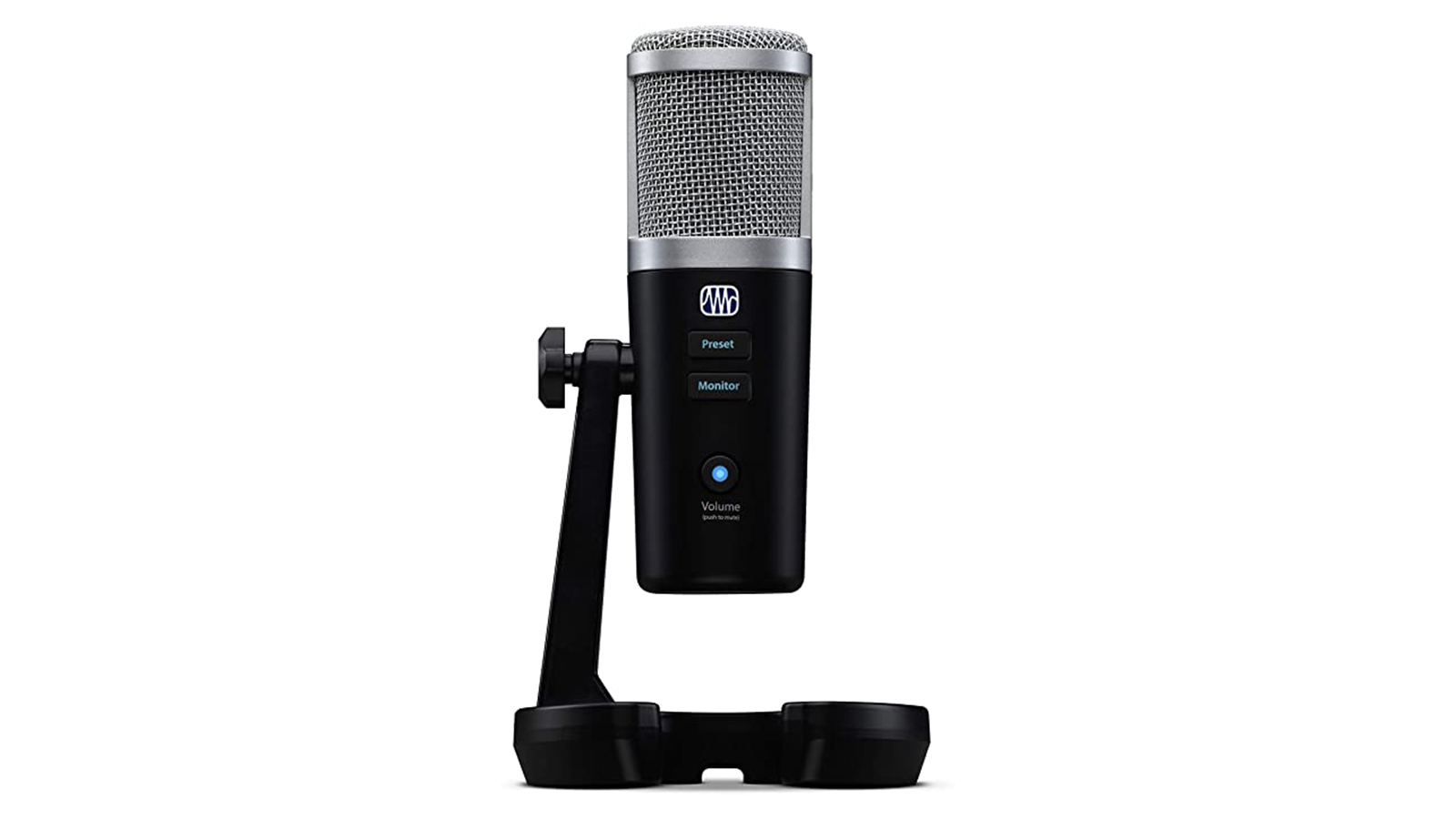
The bespoke Universal Control software offers access to 16 effects which are fully editable and customisable. Best of all, up to four of these are stored on the mic so you can use effects like Male Broadcast and the more extreme Robot away from your computer and with your phone, for example. The mic 'holds' four of these effects which are easily selectable via the Presets button and you can upload different ones via the UC software.
Universal Control also offers simple ways to tweak these effects via the Fat Channel and save your own in one of the 16 slots. You get options to edit main effects like Gate, Compressor, HPF, EQ, Limiter and Voice with easy presets on each. Or if you want to go deeper, hit one of the tabs (top right) and you will see more detailed versions of each effect with fuller editing options. You can go as complex as you like here and it's really well implemented. Add in a reverb on the right and you have a great deal of flexibility to change the sound of the microphone for whatever purpose you choose.
And these will be many and varied. As you can also select from three polar patterns, the microphone can easily be used for very common streaming setups. For video game live streaming choose the Cardioid option (which shuts off background noise behind the mic). For live or recorded podcast interviews with a couple of people using the same mic, choose the Figure-8 pattern. Or use Omni mode to pick up the entire room – good for general recording where an entire event is being streamed.
These and other setups are made even easier to implement thanks to a fantastic mixer section with loopback functionality. This allows you to grab audio from three other sources on your computer – your DAW, Skype calls, Youtube etc – to mix with your own voice. You'll see Revelator as three input devices in whatever application you have open. You could, for example, route audio from a Zoom call in (an interview perhaps), with music from YouTube, sound effects from your DAW and you are good to go as a pro broadcaster. With options to set up various mix set-ups which allows you to control everything as you live stream via UC (which has a control only app for phone and tablet) there is, as the name suggests, total control over all your various inputs and outputs.
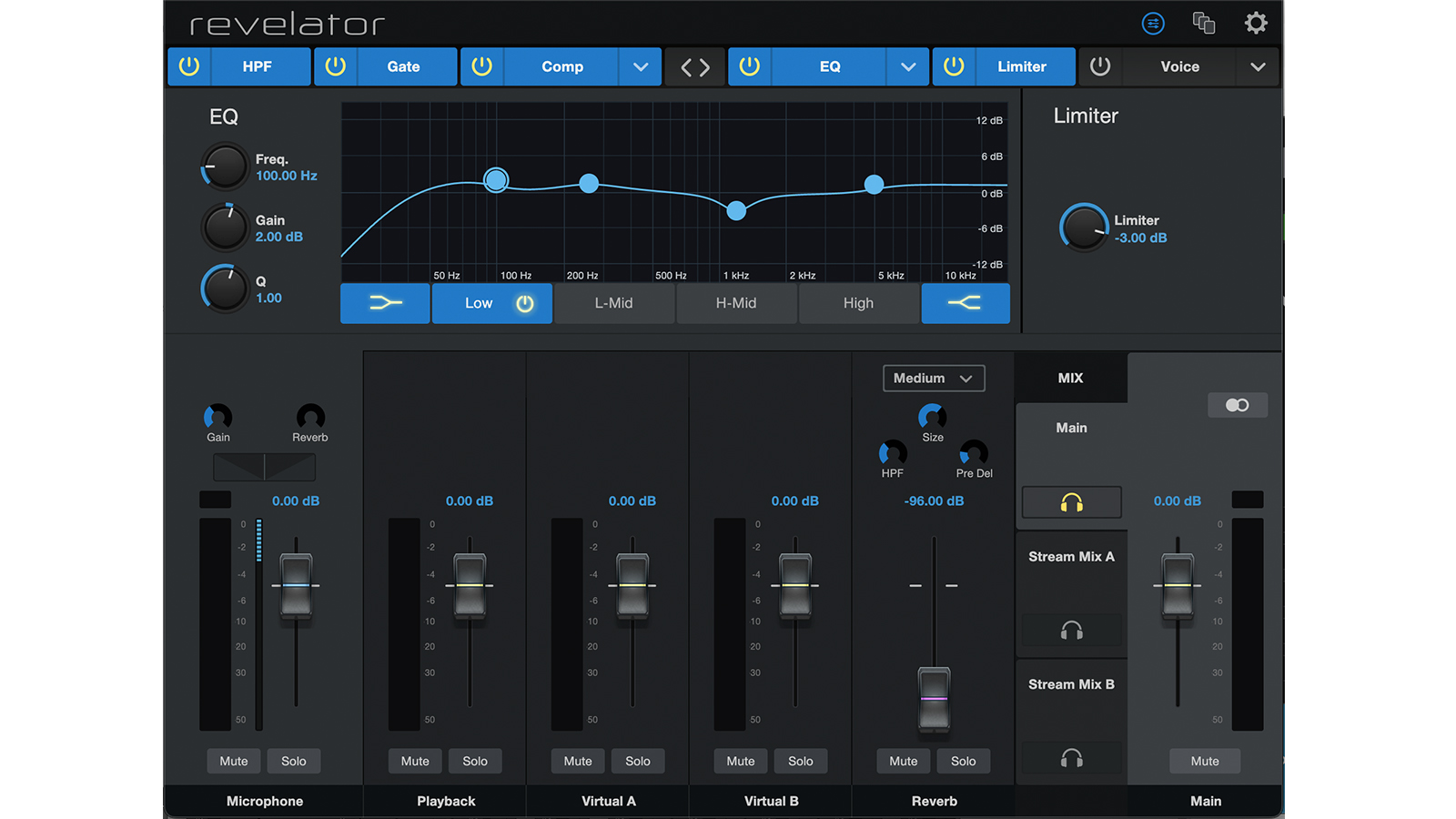
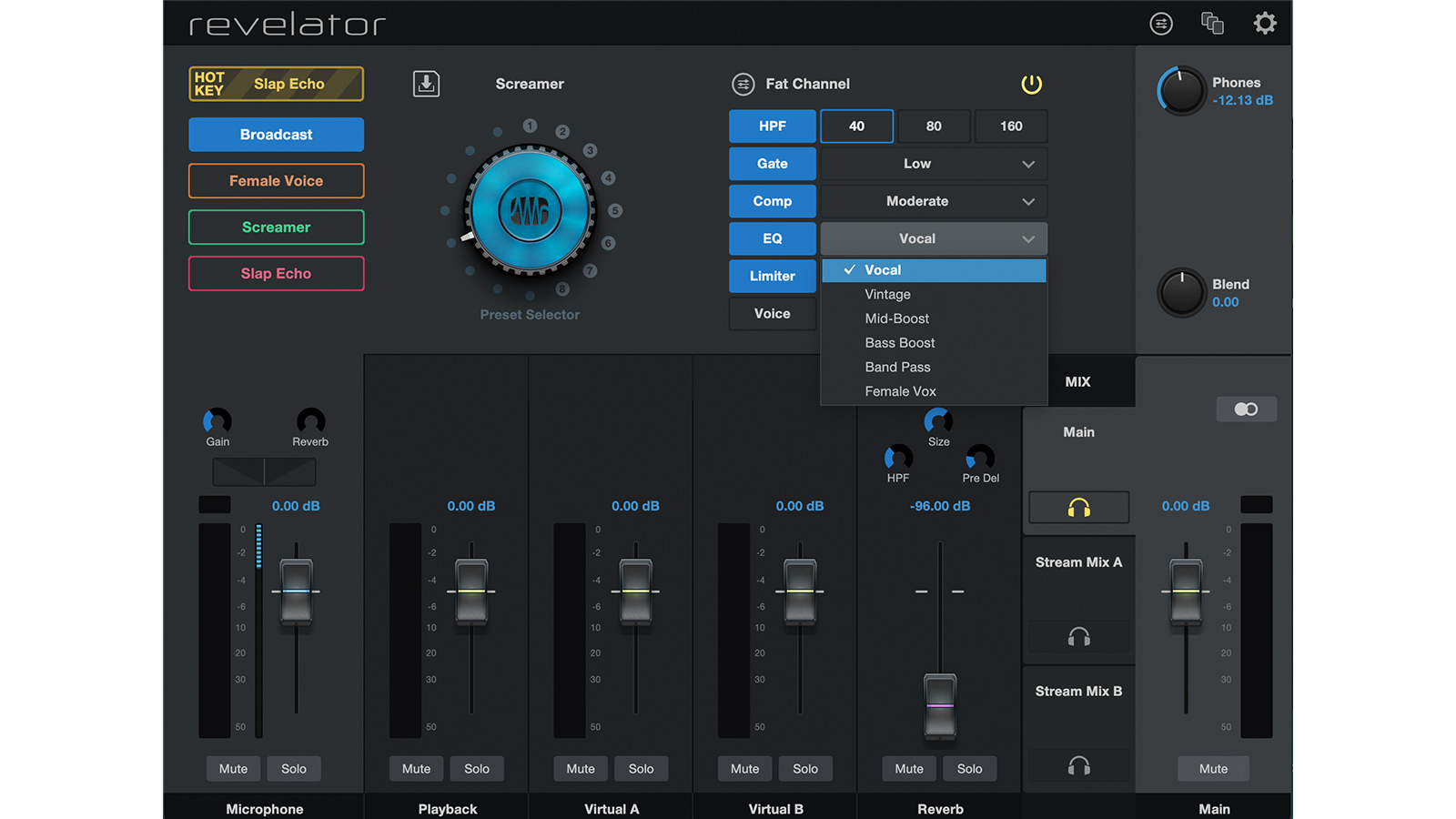
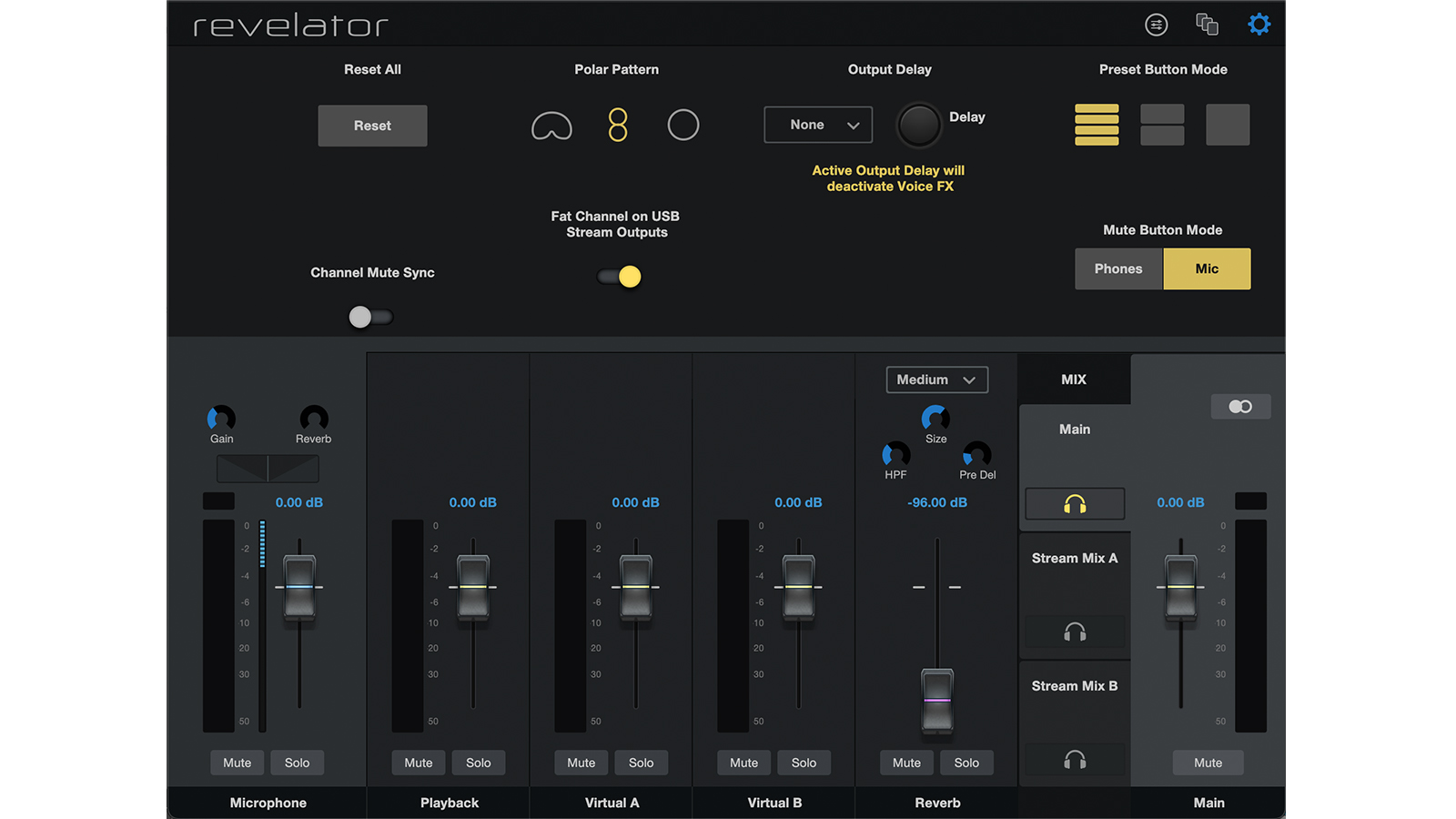
You'll need to spend time with UC as some mix options might be a little confusing. However, PreSonus offers great videos for Revelator's main setup scenarios. We also got decent results just for general recording. Obviously it excel on vocals, but those effects can be used on other recorded instruments should you wish to experiment.
The PreSonus Revelator really does reveal a lot once you explore its many features. The $1,000 software bundle impresses with its sheer volume but the real power is in the internal processing and easy to use UC software. It's the most flexible microphone in its field and price range, excellent for gamers, musicians, live streamers and podcasters.
PreSonus Revelator review: Hands-on demos
Production Expert
Music Repo
PreSonus Revelator review: Specification
- Main features: Switchable polar patterns (cardioid, bidirectional, omnidirectional); PreSonus Fat Channel with High Pass Filter, Noise Gate, 3 Compressor models, 3 EQ models, and Limiter; Voice Effects: Comb Filter, Delay, Doubler, Ring Modulator, Vocoder, Reverb
- Recording: 24-bit, 44.1, 48, 88.2, and 96 kHz sample rates (44.1 and 48 kHz only on macOS while in Multi Mode), 20 Hz to 20 kHz frequency range
- Connections and controls: 1/8" TRS active stereo headphone out, USB-C compatible/USB 2.0, direct monitor, mic gain, headphone level, mute, Preset Select.
- Software bundle: Includes Studio One Artist, Studio Magic software bundle, Ableton Live Lite
- Requires: macOS version 10.13 or later, Windows 10 or later (64-Bit Only), 200 MB storage space and 4 GB RAM for Universal Control. Also works on Chrome OS, iOS and Android
- Contact: PreSonus
Andy has been writing about music production and technology for 30 years having started out on Music Technology magazine back in 1992. He has edited the magazines Future Music, Keyboard Review, MusicTech and Computer Music, which he helped launch back in 1998. He owns way too many synthesizers.
“Excels at unique modulated timbres, atonal drones and microtonal sequences that reinvent themselves each time you dare to touch the synth”: Soma Laboratories Lyra-4 review
“I used everything I knew about music”: How Green Day exceeded expectations with their most ambitious song
YouTube just added AI tools that makes musicians, library music and video editors redundant
